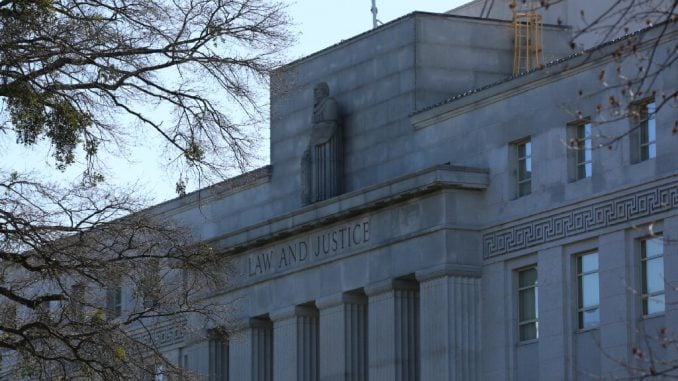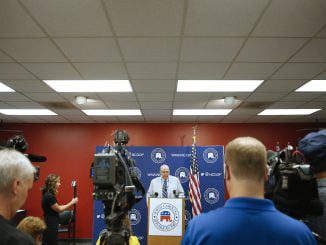
RALEIGH — The judge in the decades-long Leandro case over education funding has signed an order requiring the General Assembly to implement the plan provided to the court “in full.”
On June 7, Judge David Lee signed the order for the WestEd-produced comprehensive remedial plan to move forward. The order requires a progress report on “fulfilling the terms and conditions” of the order to be submitted by lawmakers to the court by Aug. 6.
WestEd had submitted the 300-page comprehensive remedial plan and appendix of implementation costs in March of this year after some delays.
The order is a reversal from Lee’s stance in April, at which time he had expressed hesitancy to dictate WestEd’s $8.29 billion in new state-level education spending recommendations to the General Assembly. That spending would be spread out over an eight-year period.
Senate K-12 Education Committee Co-Chair Deanna Ballard (R-Watauga) says Lee has no authority to direct spending by the General Assembly.
“A court has no more authority to direct the legislature to spend money or enact policy than the legislature does to direct a trial judge how to decide a case,” Ballard said in a statement to North State Journal. “If Judge Lee wants a say in education policy, he can run for the state legislature. That is the only way his opinions will have any weight.”
Lawmakers have seemingly been left out of the equation, despite several attempts by legislators to engage Lee.
“It’s frankly bizarre that the people involved with this case have barely engaged with legislators, yet they purport to have all the answers for what laws the legislature should pass,” Ballard said. “Legislators invited Judge Lee to share his opinions on education policy well over a year ago and he rejected that offer, but he thinks it’s appropriate for him to lobby for Democrats’ bills from the bench.”
“And for the record, the notion that the Republican-led General Assembly has underfunded education is refuted by the basic numbers,” Ballard said. “Over the past 10 years, the legislature has increased state funding per student by 39%.”
Dr. Terry Stoops, the director of the Center for Effective Education at the John Locke Foundation, called the June 7 order “confrontational.”
“Judge Lee is on record urging cooperation between the Leandro parties and the General Assembly, but the June 7 court order is overwhelmingly confrontational,” Stoops told North State Journal. “Pressure from well-funded special interest groups working in concert with the plaintiffs and defendants may have cajoled Judge Lee into adopting a more combative posture.”
Stoops also cited Cooper v. Berger and said that “Appeals Court Judge Lucy Inman observed that the ‘General Assembly’s primacy over State expenditures…dates to the genesis of the State.’”
“Shockingly, if Judge Lee and the parties in the Leandro case are not happy with the state budget, Lee appears to be willing to challenge the budgeting authority granted exclusively to the legislative branch in the North Carolina Constitution,” Stoops added. “The courts need to stay in their lane.”
Lee is the second judge to oversee the Leandro case, which first began in 1994 when nearly half a dozen rural school districts sued the state over funding. The first judge assigned to the case was Judge Howard Manning. He oversaw the case up until 2016 when then-N.C. Supreme Court Chief Justice Mark Martin took over. The change was due to Manning announcing in 2015 his intention to retire.
Ballard said that Judge Manning had “expressed fundamental disagreement with the direction this case has gone recently, and he’s right.”
The N.C. Supreme Court has twice ruled on Leandro in the past, known as the Leandro I and Leandro II rulings.
In 1997, the state’s top court ruled that North Carolina’s at-risk children have a fundamental right to the “opportunity to receive a sound basic education.” That trial was known as Leandro I and lasted just over 14 months. Part of the ruling mandated pre-kindergarten for at-risk prospective students who were defined as being either a member of a low-income family or living in a single parent/guardian home. At-risk students also could have parents without advanced educations, be enrolled in a free or reduced-cost lunch programs, or have limited English proficiency and are a racial and/or ethnic minority.
Fast forward to 2004, and the Leandro II ruling by the North Carolina Supreme Court upheld a previous lower court finding of a constitutional violation — specifically, that at-risk children in the state were being denied their right to a “sound basic education.” This time, however, the state’s highest court did not concur with the lower court on pre-kindergarten mandates, calling the mandate “premature” at that time. The case was then returned to lower court for the legislative and executive branches to devise a better solution.



